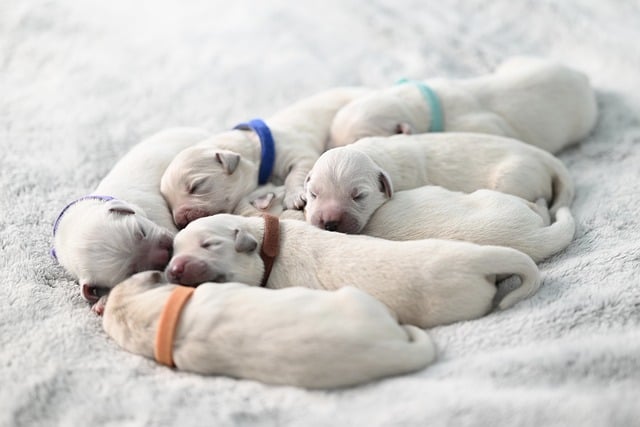
How do i train my dog to be obedient?
Watching your dog dart across the park ignoring your calls isn’t just frustrating—it can put them at risk near busy streets or public spaces.
Golden Retriever puppies thrive on consistency, so start with short, frequent training sessions—10 to 15 minutes, two or three times a day—when their attention spans are sharp. Focus on basic commands like “sit” and “stay,” using small, soft treats as rewards; this builds trust and links good behavior to positive outcomes, a key part of effective Golden Retriever puppy training. Always keep sessions light—if your puppy gets distracted or tired, pause and try again later to avoid frustration.
Before diving into training, check your local area’s dog laws: many places require puppies to be microchipped by 12 weeks old, and some have leash laws even in private yards. This isn’t just about following rules—it keeps your puppy safe, especially when you start practicing recall in quiet parks. While training, respect neighbors too; avoid early-morning or late-night sessions that might disturb others, a common courtesy in most communities.
 Socialization is non-negotiable for Golden Retrievers, who are naturally friendly but need exposure to new sights, sounds, and people to grow confident. Introduce your puppy to gentle children, calm dogs, and everyday objects like bicycles or vacuum cleaners—do this gradually, though, to prevent overwhelming them. Pair each new experience with a treat or praise, so they learn to associate the unknown with good things. This step also helps reduce fear-based behaviors later, making training smoother overall.
Socialization is non-negotiable for Golden Retrievers, who are naturally friendly but need exposure to new sights, sounds, and people to grow confident. Introduce your puppy to gentle children, calm dogs, and everyday objects like bicycles or vacuum cleaners—do this gradually, though, to prevent overwhelming them. Pair each new experience with a treat or praise, so they learn to associate the unknown with good things. This step also helps reduce fear-based behaviors later, making training smoother overall.
When your puppy makes a mistake, like having an accident indoors, stay calm—scolding won’t teach them what to do right. Instead, gently guide them to their designated potty area and praise them heavily when they go there next time. Consistency here is key: take them out first thing in the morning, after meals, and before bed, so they learn a routine. Remember, puppies have small bladders, so patience is more effective than punishment in potty training, a big part of raising a happy Golden Retriever.
Training a Golden Retriever puppy takes time, but the bond you build along the way is worth it. As they grow, adjust sessions to their age—older puppies can handle longer commands like “fetch” or “leave it,” which also keep their active minds busy. Always prioritize positive reinforcement over harsh methods; Goldens respond best to kindness, and this approach creates a well-behaved, loving dog. By combining consistency, respect for local laws, and plenty of love, you’ll raise a Golden Retriever who’s a joy to be around for years.

Watching your dog dart across the park ignoring your calls isn’t just frustrating—it can put them at risk near busy streets or public spaces.

New puppy owners often find themselves rushing to clean up accidents before they set in, and that’s where puppy pad training becomes a game-changer.

If you've noticed your dog's waistline disappearing and your veterinarian has mentioned those few extra pounds, your first instinct might be to simply reduce the amount of food in their bowl.

Training a dog to use a designated spot indoors isn’t as daunting as many new owners fear, but it does take consistency and an understanding of your pet’s needs.

That moment of dread on a walk is all too familiar for many new dog owners. You see another dog approaching down the sidewalk of your neighborhood

If the sight of another dog on your neighborhood walk makes your heart sink as your own dog erupts into a frenzy of barking and lunging, you're not alone.